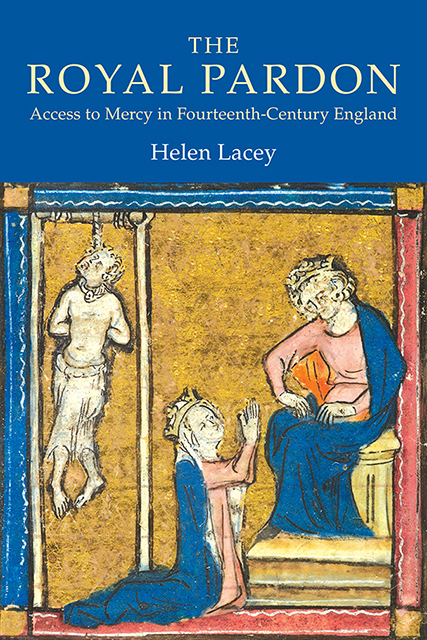Appendices
Published online by Cambridge University Press: 07 March 2023
Summary
Introduction
The statistics given in the appendices that follow are drawn from several different series of documents in the National Archives. The majority of the records relating to pardons were kept by the Chancery. The letters of pardon were drawn up by the Chancery clerks and recorded on the patent rolls (TNA, C 66). Inevitably there are a few examples of pardons that were entered on the patent rolls incorrectly, or omitted altogether, presumably because of a clerical error. Pardons might also be entered onto the Gascon and Scotch rolls (C 61; C 71) when the grant related to these particular areas. Sometimes, when a pardon had been approved by the king himself, rather than being issued solely on the authority of the chancellor, the writ of privy seal also survives. This was the document used to convey the monarch's decision to the Chancery, and it would then serve as a warrant for the clerks to issue the pardon (TNA, C 81). Most of these warrants can therefore be matched to the record of the pardon subsequently issued, but in some instances no corresponding enrolment can be identified (examples can be found in the Calendar of Chancery Warrants). The Chancery also kept records of those who volunteered to act as sureties for the future good conduct of a recipient of pardon (C 237). In 1336 there was an attempt to make the finding of sureties a legal requirement, but in practice this requirement was increasingly waived or ignored (see Chapter 4 for further details). A final category of useful Chancery documents comprises the ‘cancelled letters patent’. Among them are letters of pardon that were drawn up, but never collected, perhaps because the recipient had died while on a military campaign (C 266). These documents all record the issue of the pardon itself. Petitions for pardon, where they survive, are found predominantly in the series of ‘ancient petitions to the crown’ (SC 8). The financial records of the Hanaper also record payment for pardons, although these records are not complete for the fourteenth century (E 101/211–13). When the first general pardons began to be granted, the Chancery clerks recorded the names of those who came to purchase a copy on a separate roll supplementary to the main patent roll series (TNA, C 67/28B–31).
- Type
- Chapter
- Information
- The Royal Pardon: Access to Mercy in Fourteenth-Century England , pp. 183 - 232Publisher: Boydell & BrewerPrint publication year: 2009



